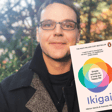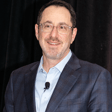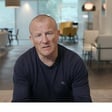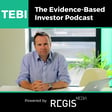Become a Creator today!Start creating today - Share your story with the world!
Start for free
00:00:00
00:00:01

Ep 9: The factor zoo
The latest TEBI Podcast, sponsored by Regis Media, is now online and features Larry Swedroe. Larry has just written his eighth book on investing. It’s called Your Complete to Factor-Based Investing, and it was co-authored with Andrew Berkin.
In this podcast, I ask him:
With more than factors in the so-called “factor zoo” to choose from, has factor-based investing gone too far?
How many factors are there that ordinary investors really need to know about? And what are they?
As more and more investors seek to gain exposure to specific factors, is there a danger that they will cease to outperform? Might we even be seeing a bubble forming?
Transcript
Introduction to the Podcast
00:00:05
Speaker
Hello and welcome to the Tebbe podcast from The Evidence-Based Investor, brought to you by Regis Media, connecting advisors with clients. I'm Robin Powell. This week we have a very special guest, Larry Suedro. Since 1996, Larry has been Director of Research at Buckingham Asset Management in St. Louis.
00:00:28
Speaker
where he spent his time, talent and energy educating investors on the benefits of evidence-based investing with great enthusiasm.
Meet Larry Suedro
00:00:38
Speaker
Larry was among the first authors to publish a book that explained the science of investing in terms the layman can understand. It was called The Only Guide to a Winning Investment Strategy You'll Ever Need. He's since written seven more books.
Factor-Based Investing Explained
00:00:55
Speaker
In this podcast, I want to focus on his latest, co-authored with Andrew Birkin. It's about factor-based investing, sometimes known as smart or alternative beta.
00:01:09
Speaker
He's Larry. So the book is called Your Complete Guide to Factor-Based Investing. The academic literature has moved a bit beyond asset class investing to factor-based investing. And factors are nothing more than a characteristic, a trade, or a style of investing that can be expressed even across asset
The 'Zoo of Factors' Debate
00:01:29
Speaker
classes. So you could buy value, which is buying what's cheap, in stocks, bonds, commodities, or even currencies.
00:01:37
Speaker
The problem for investors today is in the academic literature, over 600 factors have been discovered. So many that John Cochran called it a zoo of factors. So how is an investor to know which of the 600 are worth investing in? So we wrote this book to give people guidelines to help them make that decision, and we set some criteria. So we want to see that a factor is persistent across very long periods of time,
00:02:07
Speaker
So we're not sure we didn't get lucky at 20, 30 year period where the risk didn't show up. We want to make sure it's pervasive. Of course, industry, sectors, regions, geography, the rest of the world. Even better if it works across asset classes. So value, as I said, works across many asset classes. So does momentum.
00:02:25
Speaker
We want to make sure it is implementable, meaning it survives transaction costs, and we want to make sure also that is intuitive so that we have a reason to believe it exists. And finally, we want to make sure it's robust, meaning we didn't get lucky to find price-to-book works
00:02:45
Speaker
for value, but we get much more confidence if other metrics like price to earnings, price to cash flow or EBITDA also work. So we laid out eight factors that met our criteria. I'll be honest with you, although I can see it works, I'm probably not quite as big a fan of factor-based investing as Larry Suedro is. The Farmer French three-factor model is pretty compelling. Size and value have certainly delivered a premium over the long term.
00:03:14
Speaker
But my suspicion is there are now too many people coming up with factors for the sake of it, or in many cases to help them sell financial products.
Complexity and Risk of Factors
00:03:24
Speaker
So I asked Larry, is there a danger that factor-based investing has simply gone too far?
00:03:30
Speaker
Well, I think that's what we suggest in the book, that the literature is showing that there are 600 of these factors. But how many of them really survive these simple tests that we created? And so, for example, there may be a dividend factor. And it exists in the literature. But it's what would be called subsumed by other factors. So high dividend stocks are value stocks.
00:03:56
Speaker
Okay, growing dividend stocks are quality stocks. So if you screen for these factors, you don't need to look at dividends at all. That's one thing. And a lot of the others are just, if you will, an expression of the eight that we identified, or they don't survive the test. So the ones that we looked at that pass all of our criteria, and we present the evidence from the academic literature, we cited 106 papers, are the market beta,
00:04:24
Speaker
obviously size meaning the small cap stocks outperform over the long term value momentum profitability and quality something that's called the carry trade and last is the term premium and we throw out the rest
00:04:40
Speaker
The reason I'm slightly sceptical about factor-based investing is the danger that the growing popularity of certain factors has pushed valuations up. Rob Arnott of Research Affiliates, a pioneer in the field, has expressed that concern himself.
00:04:57
Speaker
What I ask Larry, does he make of that? Is it true that premiums start to disappear as more people choose to gain exposure to them? Might we even be heading for a factor-based investing bubble?
00:05:11
Speaker
Well certainly that's a risk and we actually have a chapter on the book. What is the impact of publication on the factors themselves in the premiums? Do they shrink? Do they disappear? There's actually pretty good literature now on this that for the factors that have been identified many of them do disappear but on average they shrink about one-third.
00:05:35
Speaker
So money does come in, and if you buy the cheap stocks, you push their prices up, you push down by shorting or avoiding the overvalued stocks, if you will, the spread between them narrows, and then the premium obviously would shrink. And certainly that can happen. So even if you have a risk-based explanation, that's part of our intuitiveness. So for example, stocks are clearly more risky than safe bonds.
00:06:03
Speaker
If more money goes into stocks as it poured in the 90s, then the equity risk premium will shrink. But it should never in the long term disappear because stocks are riskier than safe treasury bills and investors demand the premium. That's why we create this test of intuitiveness
00:06:22
Speaker
Okay, that there should be a reason now. Risk-based is one. The other is there can be a behavioral bias that leads us to make investment mistakes. And we believe that there are some of these factors that are clearly behavioral, like momentum. We think quality and profitability are other factors that mostly have a behavioral trait, but human beings simply don't change. They make persistent mistakes.
00:06:48
Speaker
And the fact that there are what are called limits to arbitrage that prevent the sophisticated investors from correcting mispricings, things like high trading costs, the cost of margin, fear of being short and things go even higher, they can prevent their market from correcting mispricings.
Financial Advisory Services
00:07:08
Speaker
going to take a short break there. In a moment we'll hear from Larry why in his view investors should be seeking exposure to different risk factors in addition to plain market beta. First though here's a message from our sponsor Regis Media.
00:07:24
Speaker
Hi, I'm Sam Willett, a producer here at Regis Media. Today, investors have more access to information than ever before, and the financial media is as distracting as ever. So these days, investors need help cutting through the financial noise. By educating your clients about the basics of investing, you can build an audience, raise brand awareness and grow your business.
00:07:44
Speaker
At Regis Media we can help you get your message out there by producing great content such as video, animation, graphics, articles or podcasts. We can also show you how to use that content to get new clients on board. To find out more visit RegisMedia.com
Quantitative vs Narrative Investing
00:08:04
Speaker
Welcome back. We've been looking at investment risk factors and in particular at a new book by Larry Squedrow and Andrew Birkin called Your Complete Guide to Factor-Based Investing.
00:08:17
Speaker
Now earlier I mentioned Rob Arnott. Another name of course that's often associated with factor-based investing is Clifford Asness at AQR Capital Management. Asness has in fact written the foreword to Suedro and Birkin's book and in itself the foreword makes for very interesting reading. Let me read a short section from it.
00:08:40
Speaker
contrast this book, Asness writes, with the legion of investing books telling you how to actively pick stocks just like Warren Buffett. Those books are, in my view, far easier to write than this one. There are always great stories when it comes to individual companies, fascinating tales of greatness and woe that end wonderfully for the sage stock picker who is the hero of this tale.
00:09:05
Speaker
In contrast, Larry and Andrew have taken on the task of describing an inherently quantitative affair. Factors don't have made for TV endings. Of course, while the stories are better in the world of discretionary stop-picking, it has one small problem. It generally doesn't work. And for me, that's the crucial point.
00:09:29
Speaker
about factor-based investing. No, it's not for everyone. There is additional risk involved, but as long as you stick with it and maintain realistic expectations, the evidence clearly shows that it does work.
Aligning Portfolios with Beliefs
00:09:45
Speaker
Here's Larry Suedro again.
00:09:47
Speaker
Let me say it this way. I believe and I write in my books and we end our book with this caution that there is no right portfolio. There's only the right one for each individual investor. And for you to make any investment, you need to have a very strong belief system on why you think that investment has an expected return over the long term. Because if you don't,
00:10:14
Speaker
All of the investments that we identify in the literature, every one of them, including market beta, go through very long periods of underperformance. Market beta, for example, has been negative 4% of the 20-year periods we have. So if you're not convinced of this, you will abandon it. So that's the first thing, and that's why we wrote the book.
00:10:36
Speaker
to present the evidence in the literature, so you could gain or not that conviction, that belief system, and if you do, that should allow you to stay the cost, but if you disagree and aren't convinced by the literature, you should not invest and then just stick with the simple market beta.
The Importance of Diversification
00:10:54
Speaker
Let me close just with this last point. Here's a big issue that most people who invest in the typical 60-40 portfolio simply don't understand or are unaware of.
00:11:05
Speaker
If I ask the average investor at 60% in a Vanguard total market fund and 40% in say a Vanguard intermediate treasury fund, that would be a typical portfolio. I ask them how much of your risk is in equities, they'll say 60%. Unfortunately, because equities are much more risky than the safe bonds.
00:11:28
Speaker
20% volatility versus about five for the safer bonds, almost 90% of your risk is in market beta. And therefore, I'm personally a big believer in diversifying, of course, these other factors where we show there's evidence of a persistent, pervasive, robust premium with intuitiveness and
00:11:49
Speaker
They tend to be low correlation so you get a diversification benefit. Not all of them will do well at the same time and not all of them will do poorly at the same time. And that tends to reduce the tail risk. You're much less likely to have a horrible outcome and you can't get the great outcome because you're not only in the best performance.
Conclusion and Thanks
00:12:10
Speaker
And that brings us to the end of another Tebbe podcast. Thank you to Larry Suedro and to our sponsor Regis Media. If you're a financial advisor and you want to find out how Regis Media can help you to attract, retain and educate clients, check out the website at RegisMedia.com. That's RegisMedia.com. Until next time, from me, Robin Powell, goodbye.
















